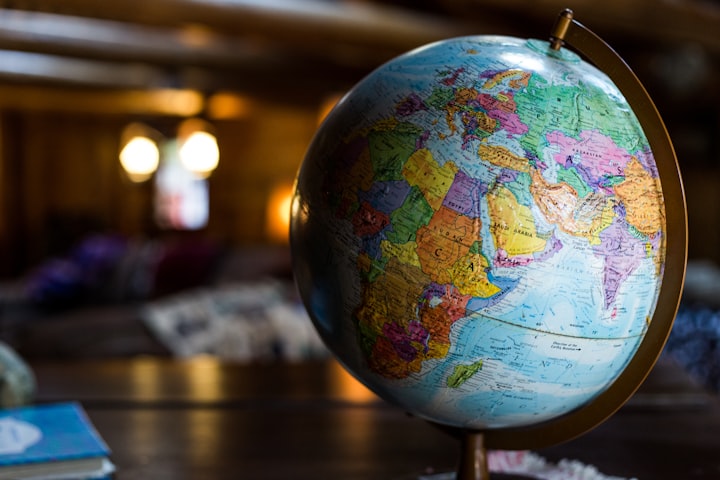
If you were offered a coveted job in your field, but it was in another country, would you accept?
For me, the answer was a resounding “yes.”
The excitement of obtaining your first job is euphoric. You know there will be challenges along the way, but you’re only focused on how amazing it will be, and now you finally have an answer to all the “So what’re you doing after college?” questions. There were also perks of watching eyes widen when I mentioned moving countries.
Living in the middle of another culture is filled with wonder and novelty, but it’s not the only experience.
There are moments and ongoing experiences full of hardships and dysphoria. These feelings are worse when you realize you never had to experience them in your home country, but they’re the reality of many immigrants and expats.
You feel suffocated in your second language.
It’s a jarring experience when you want to say something, but you can’t. You physically can’t. The first time it happens, you think it’s just a fluke. After all, you’ve been communicating with others for the majority of your life.
But then it happens again: in the taxi cab, in the grocery store, mailing a letter, paying your rent, asking for directions. You start a sentence, and it abruptly pauses, then the pause opens into empty space. This linguistic nakedness ramps up your anxiety, making it harder to learn and improve in the language effectively.
It was a sobering and humbling experience. I had gone to university, gave presentations, hosted podcasts, tutored students, and wrote articles. Communication was one of my strengths, yet I was having trouble understanding the ticketing clerk when I needed to buy a Navigo.
Looking back at your accomplishments, you don’t realize how nonexistent they would be if you didn’t speak that particular language. I have the advantage of being a native English speaker, so I automatically don’t have to worry about the English language requirement in many educational spaces, such as universities and conferences.
Yet in my first month abroad, all I heard were misshapen words and produced something akin to garbled noise using sounds that don’t exist in my native tongue. I couldn’t say half the things I wanted to.
You realize other cultures are just as nuanced and diverse as yours.
It’s not fair to assume that everyone will act per stereotypes or information you find online. When I heard about the differences in French and American culture, it usually boiled down to a few things.
- They don’t do “athleisure” 24/7 like in the US.
- You say “bonjour” when you enter a shop or lock eyes with someone
- It’s normal for places to be closed on Sundays
- You stop working at 5 PM
A lot of these cultural resources don’t take into account that culture is always changing and evolving. Globalization is one of those outside forces that’s putting pressure on many different cultures to change and adapt in a certain way.
Just like in other countries, there are differences in culture depending on the location. In the southeast US, I noticed many immigrants from Central American, South Asian, and East Asian countries. In Paris, I spoke to more people from north and west African countries and neighboring European countries.
It turns out you can read and read and read about another culture all you want, but you’re guaranteed to come across people who don’t fit the bill. Each person is unique, carrying around different experiences that have shaped them into the person they are today.
You can use what you’ve learned from language textbooks, multicultural blogs, and others experiences as a blueprint. However, your experience and the knowledge you gain about other cultures will more than likely be very personal.
Your specific needs, situations, combined with your culture and previous experiences, allowed you to gain that particular knowledge in the first place.
You feel homesick for familiarity.
An article (out of many) on Medium criticized the Netflix show Emily in Paris, and one of the reasons being that Emily had a clean break from her life in the US.
Emily is a cheerful, hardworking American young woman who moves to Paris to fill a position at her boss’s request. She’s away from her friends, family, and boyfriend without really so much as displaying any form of homesickness. Mind you; she doesn’t even speak French!
It’s exciting working in another country, especially in a city that is heavily romanticized like Paris. I related to her joy, but I didn’t relate to the lack of homesickness.
You may not feel homesick for your home, but the homesickness leaks out through many small cracks.
- You miss the seamless communication in your native language
- You miss knowing all the great bars and restaurants
- You miss the familiar traffic patterns and road signs
- You miss the general predictability of your day
Emily was disturbingly cheery as she just navigated the streets of Paris, not worrying about how she fits into a completely different world. Instead of reckoning with this, she barrels ahead without understanding the culture.
It was disorienting to see that someone else thinks an American in Paris would actually live like that: a clean break from your native tongue, your nostalgia, your relationships, and your cultural identity.
When you visit home, you don’t quite fit in anymore.
You inadvertently change when you live in a different country for a prolonged time. Sometimes, the small changes aren’t a big deal, but they become very existential in other cases.
- You find yourself forgetting small “social rules” of your home country
- You realize you dislike certain native customs and prefer some customs of the expat country
- You feel a little alienated because others point out that you’ve “changed.”
It doesn’t matter if these changes are intentional or unconscious. You’ll find yourself forming habits drawn from different places, and that will, unfortunately, scare people. You don’t stay the same one-dimensional person they’ve always known.
You become more open, more willing to hear others’ stories because your own story has changed.
You become more empathetic, more willing to see the other side because you’ve been on the other side.
The identity you held when you left your home country has changed. You will be surprised at the people who choose to walk out of your life because of your new identity. Consequently, you’ll be grateful to those who stay.
Final Thoughts
Empathy is hard. It’s hard to cultivate and truly hard to understand someone else’s position unless we’ve experienced it. Moving to a new country gave me a small taste of what my parents faced when they moved from India to the US. Conversely, being an American and native English speaker means there are certain hardships I will never have to endure, which I never truly realized until I moved to Paris. There is an inherent privilege in choosing to relocate yourself not out of fear but out of a hunger for adventure.
This article was originally published in The Expat Chronicles on Medium.
About the Creator
Anu Kumar
Writing about the brain, culture, and everything in between. Researcher, expat, and book addict. Head editor of par-desi.com.






Comments
There are no comments for this story
Be the first to respond and start the conversation.